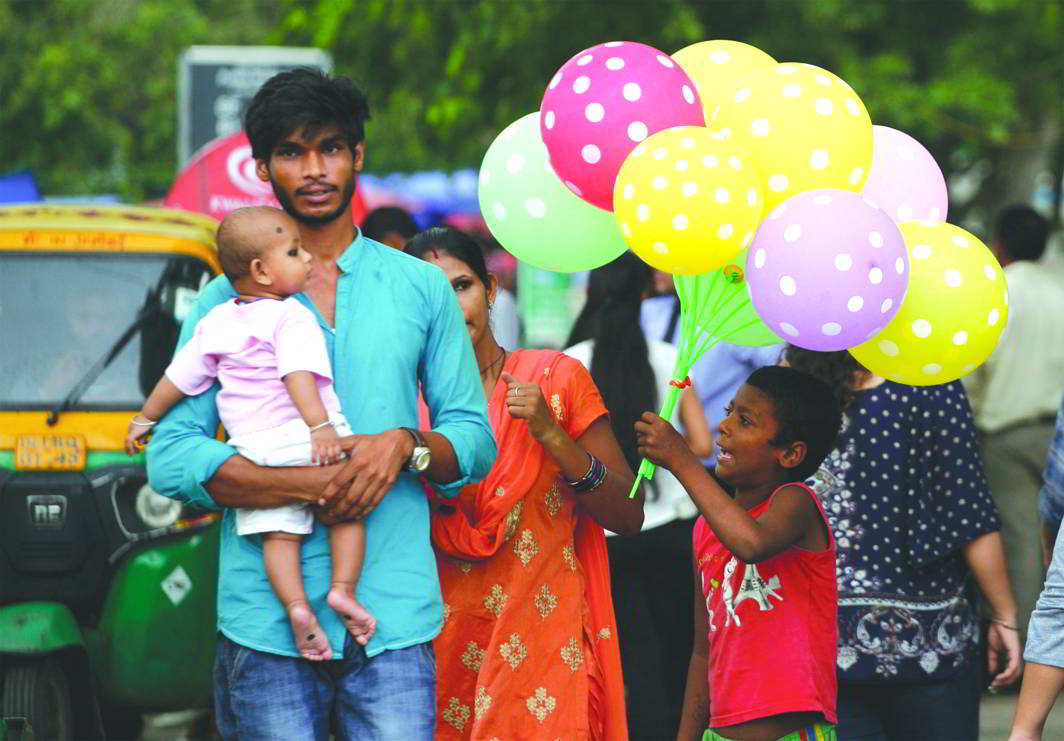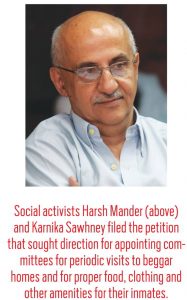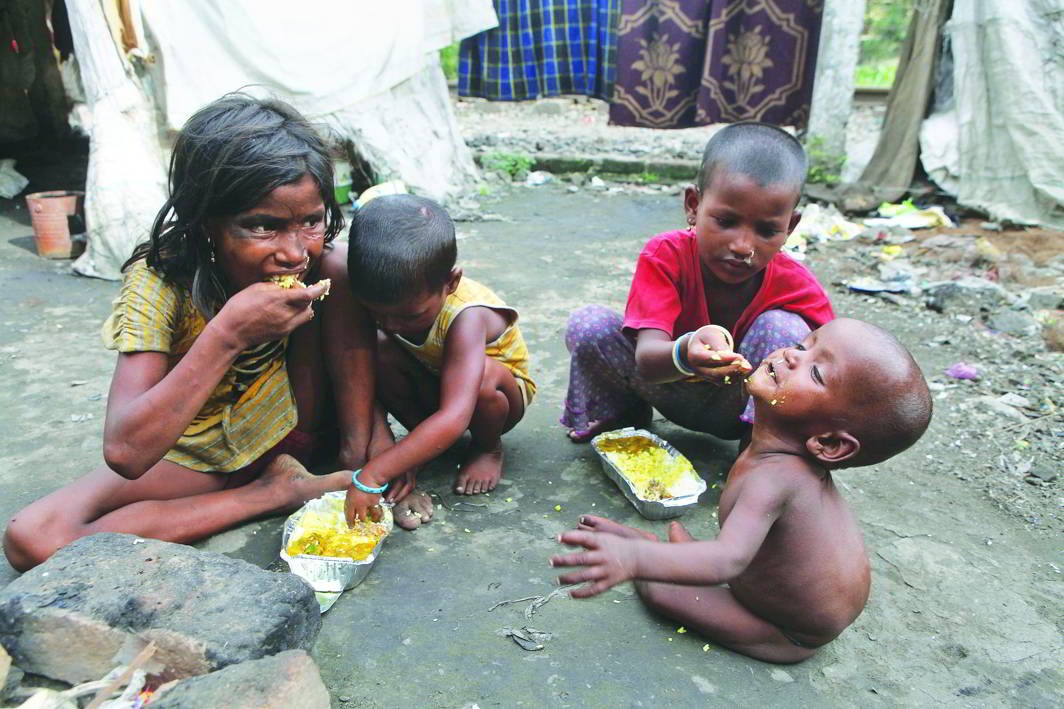A draft bill which aimed to decriminalise begging was abandoned by the centre after it failed to convince activists who said it didn’t address poverty per se
~By Venkatasubramanian
It was a legislation which failed to see the light of day. But that need not make anyone shed tears. On September 14, the centre told the Delhi High Court that it had decided to abandon the Persons in Destitution (Protection, Care and Rehabilitation) Model Bill, 2016, without stating any reasons.
Although the decision left the High Court bench of Acting Chief Justice Gita Mittal and Justice C Hari Shankar surprised, the public interest litigants in this case must have felt happy that the centre had abandoned it. The Bill, in any case, had failed to address the concerns of the activists who had sought such a law.
UNFORTUNATE MOVE
Not knowing the reasons for the centre’s move, the bench described it as “unfortunate”, as the Bill aimed to decriminalise begging and rehabilitate beggars and homeless people. It took a year for the government to produce its draft.
The petitioners in this case were social activists Harsh Mander and Karnika Sawhney. Sawhney, who filed the petition in 2000, sought basic human and fundamental rights for beggars in Delhi. The petition also sought direction for appointing committees for periodic visits to beggar homes and for proper food, clothing and other amenities.
The Bombay Prevention of Begging Act, 1959 was made applicable to Delhi by the centre through an amendment in 1960. The Act prescribes that if any person, who was detained in a certified institution, is found begging, he shall, on conviction for the first time, be detained for not more than three years. A second conviction would entail detention for ten years.
All offences under this Act, except those under Section 11, are to be tried summarily. Section 11, which gives the opportunity of being heard to the accused, imposes a punishment of a minimum one year and a maximum of three years imprisonment on those who cause others to beg or use them for begging. That a law which denies natural justice has survived for so long is testimony to the apathy in society.
As many as 20 states and two Union Territories have either enacted their own legislations or adopted those enacted by other states. As per Census 2011, the population of beggars and vagrants is about 4.13 lakhs (3.72 lakhs non-worker category and 41,453 marginal workers category). Details of the population of destitutes are not available.

MANEKA’S MOVE
Ironically, while the ministry of Social Justice and Empowerment has dropped its proposal, another minister in the Modi government, Maneka Gandhi, was unaware of the government’s volte face on the issue. She wrote to Social Justice and Empowerment Minister, Thawar Chand Gehlot, in August seeking a comprehensive legislation to address the issue. She stressed the need to enact a law on beggary with an emphasis on rehabilitation and reintegration of members of this vulnerable section of society.
“Since children cannot be seen in exclusion from their families, the approach should be rehabilitation of the whole family and extending the social protection net to them,” she said in her letter.
She referred to the Juvenile Justice (Care and Protection of Children) Act, 2015, and said it identifies child beggars as “children in need of care and protection” and provides for their rehabilitation and re-integration in the society through child welfare committees. The Bombay Prevention of Begging Act, 1959, violates the rights of children and contradicts the protective provisions of JJA, she further claimed in her letter.
A survey by the Delhi Commission for Protection of Child Rights had found 5,727 children begging in August 2015.
In Ram Lakhan v State, the Delhi High Court, in 2007, held that detention of persons begging because of poverty is dehumanising to them.
The Persons in Destitution (Protection, Care and Rehabilitation) Bill, 2016 aimed to cover the rights of all destitutes—homeless, persons with mental and physical disabilities, beggars, the old and the infirm—who are above the age of 18 and in a state of poverty or abandonment arising from economic or social deprivation and sustained unemployment.
Under this draft bill, which was dropped, employing a child for begging and any form of organised or syndicate or forced beggary will be a crime punishable under the JJA and the IPC. The Bill envisaged sending those found begging to rehabilitation centres, for which states were to be asked to make budgetary allocations.
According to activists, the existing beggary acts are not aimed at addressing poverty per se, but only at dealing with ostensible poverty in its most visible forms. “This clearly betrays the fact that the state views poverty as a problem of aesthetics and visibility, and not one borne out of structural injustice,” said one of them.
LACUNAE IN LAWS
Existing laws on beggary have successfully delinked beggary from poverty, seeing the former more as deviant behaviour and not as the last resort of a desperately impoverished person. In Ram Lakhan v State (2007), the Delhi High Court criticised this approach of the law. The Court held that detention of persons begging because of poverty is dehumanising to them, and is a disgrace and a failure of the state. The Court recognised that necessity drives persons to beg and criminalising such necessity is violative in itself.
 The Court observed that a blanket restriction on the seeking of alms can be considered violative of the fundamental right to freedom of speech and expression, and even the fundamental right to life. Although the Court qualified it as merely an observation, and not a decision on the constitutionality of the law itself, it remains as a pertinent observation on the perversity of a legal landscape, claim activists.
The Court observed that a blanket restriction on the seeking of alms can be considered violative of the fundamental right to freedom of speech and expression, and even the fundamental right to life. Although the Court qualified it as merely an observation, and not a decision on the constitutionality of the law itself, it remains as a pertinent observation on the perversity of a legal landscape, claim activists.
The existing beggary laws not only delink beggary from poverty, but also create false distinctions between ostensible, that is, visible poverty, and invisible poverty and further acts to make the former invisible.
The existing legislations are aimed at cleaning visible poverty without actually addressing the reasons behind it. These can be varied, complex and extremely problematic, activists have contended. Structural reasons behind poverty have been identified as lack of access to education, caste-based discrimination, landlessness, disability and abandonment, among many other factors.
OVERHAUL BILL
In a detailed commentary on the draft Bill, Peoples Union for Civil Liberties, Alternative Law Forum, and Sadhana Mahila Sangha have observed that though the letter of the Bill decriminalises begging, its spirit continues to perpetuate a model that views poverty as a crime in itself.
Unless it is completely overhauled, this Bill will only aggravate the systemic social and economic deprivation of marginalised communities, much like its predecessors, they have concluded.

Among the recommendations which they have made are the following:
- a clear and comprehensive scheme of rehabilitation
- informed consent of individuals before taking them to rehabilitation centres
- making such consent mandatory for their continuance at those centres
- functioning of such centres as open centres with free ingress and egress
- non-involvement of private bodies as implementing agencies
More importantly, these NGOs have recommended that the model law should protect persons in destitution from harassment, targeting or abuse by the police or any other person in authority in such centres. They have also recommended that Chapter III of the draft Bill, dealing with the procedure for punishing beggar offenders, must be deleted.
According to them, Section 363A of the IPC which seeks to punish kidnapping or maiming a minor for purposes of begging, is sufficient for the purpose.
Another provision of the draft Bill, which invited the ire of the activists, is Section 15, which protects action taken in good faith.
It says that no suit, prosecution or legal proceedings shall lie against the state government or any person acting under the direction of the state government in respect of anything which is done in good faith or intended to be done in pursuance of the Act or of any rules or orders made under this Act. Such a blanket provision would have left beggars and activists without any remedy in case of a misuse of the law.
While this draft Bill has been dropped by the government, it should provide a fresh opportunity for drafting a new bill based on the suggestions of all stakeholders.


